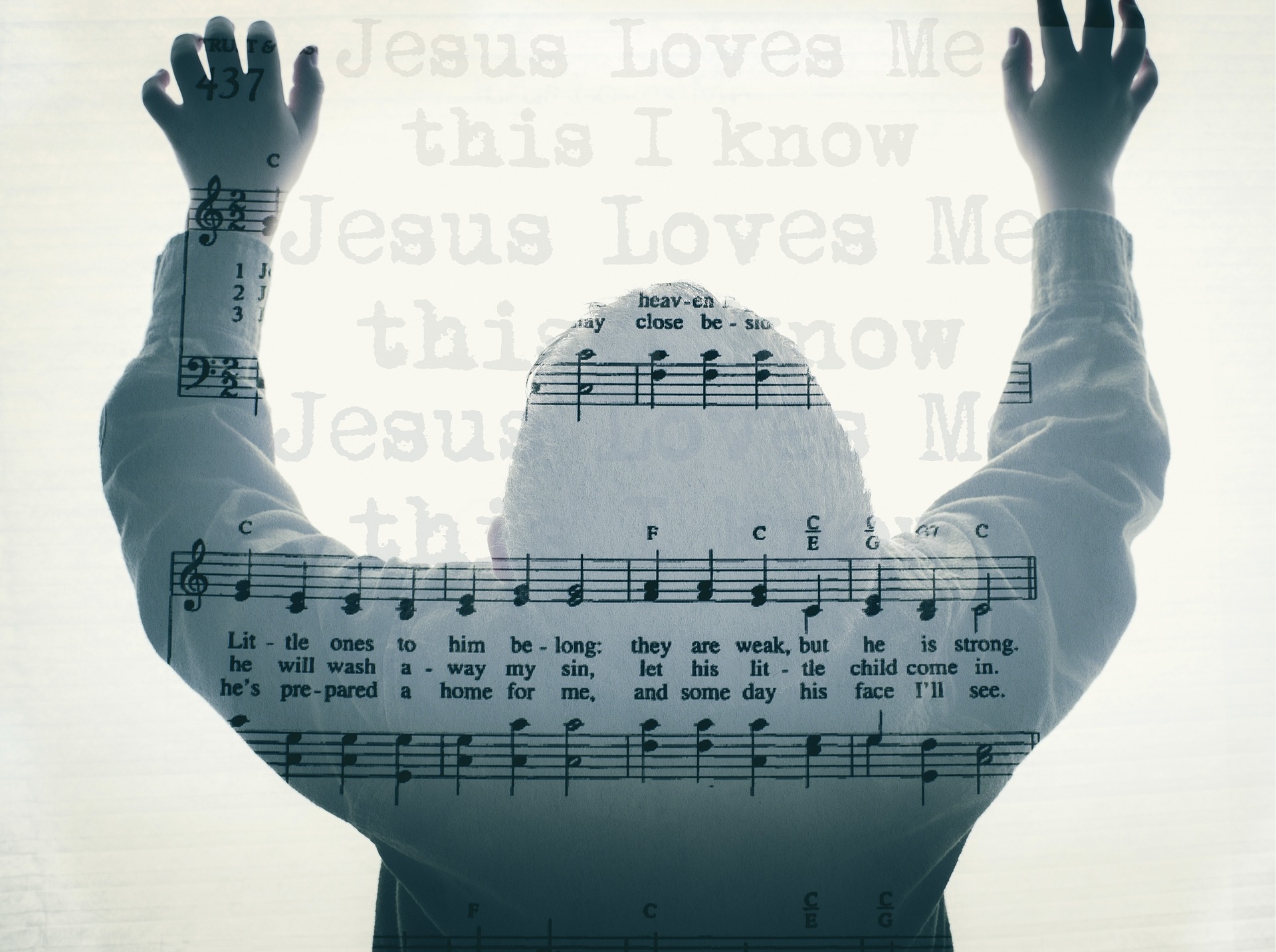Revelation was written to a discouraged church in the first century that did not understand God’s plan. They were under persecution from without and, as chapters 2–3 indicate, also had internal problems. Where do we turn when things don’t look encouraging outside or inside? We look up! If you are discouraged, you need to peek through this hole and see what John saw. We are overcomers, but we must keep praying and singing.
The twenty-four elders in chapter 5 symbolize the church, old and new. It is the church that worships with the harp and bowl. When you have trouble praying, open up the hymnal and start with praise. Prayer and praise go together.
Our Harp
The church begins to worship in Revelation 5:8–10. To worship is to ascribe worth. “You are worthy.” We worship God through music. There are sixteen hymns in the book of Revelation. In Revelation 5:9 they sang a new song. The old song was the song of chapter 4—a song of praise to God our Creator. The new song is the song of chapter 5 to Christ our Redeemer.
Then in verse 11 angels beyond number join the chorus, singing “worthy is the Lamb.” They rejoice every time a sinner repents. In verse 13 all nature—every creature in heaven and on earth and under the earth and sea—join in the worship. Notice, however, that it is only the church that praises Christ for his work of redemption.
Our Bowl
In Revelation 8:3–5 the bowls are full of incense, which are the prayers of the saints. Prayer is our priestly function (v 10). Prayer is spiritual warfare, and we fight our battles through worship.
A new day has dawned on the world—the Day of the Lord. The Lamb has been slain. Atonement has been completed. Through his blood the gates of heaven are opened. The seven churches are candlesticks blazing the light of the gospel. The prayers of God’s people ascend to the throne of God. Chapter 8 opens with this description of prayer rising like incense. Our prayers are collected in bowls and are not lost or forgotten. In God’s own timing he sends fire from heaven in answer to our prayers.
Our prayers have filled the golden bowl and have been brought before the throne. There is silence for half an hour as our great high priest intercedes for us. “The Lord is in his holy temple; let all the earth be silent before him” (Hab 2:20; see also Zech 2:13). Then the trumpets sound and the bowls are poured out. Heaven sings while the enemies of Christ and his kingdom are judged (Matt 27:25).
We live between the kingdom inaugurated and the kingdom consummated. This calls for faithful endurance and joyful worship (Rev 14:12). In the second century Tertullian wrote an essay on patience. He wrote that God is the author of patience, and the devil is the author of impatience. He explained that every sin we commit has its root in impatience. Of course, patience or perseverance means to steadfastly endure in the face of opposition. Of this patience, William Barclay wrote, “It is not the patience which grimly waits for the end, but the patience which radiantly hopes for the dawn.”
While we fight for the soul of our nation and the future of our families, we must remember that the weapons of our warfare are not carnal (2 Cor 10:4). We fight on our knees. And when we cannot pray, we can praise. Are you discouraged? Are you finding it difficult to find the words to pray? Then tune up your harp. “Tune my heart to sing Thy praise,” as Robert Robinson wrote in 1760. By faith, Paul and Silas were enabled to sing at midnight, while incarcerated. God hears our praises and our prayers and in his timing, he will respond. “Joy comes with the morning” (Ps 30:5).

